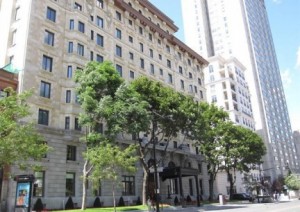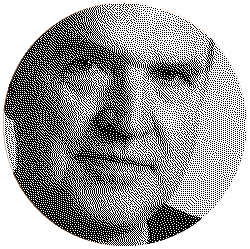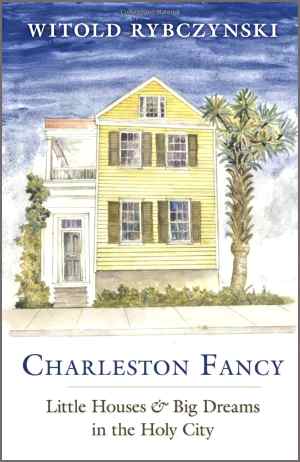 I haven’t lived in Montreal for twenty years, but it’s the city where I passed my twenties, thirties, and forties, so it is a place full of memories. But like all North American cities, it is in constant flux; the city of today is not the one I left in 1993. The view of Mount Royal outside my hotel window is comfortingly familiar, but the downtown is undeniably different. It appears oddly both more prosperous and more provincial than I remember. The Ritz Carleton, the first Ritz hotel in North America and the grande dame of Sherbrooke Street, is now two-thirds condominiums, and Daniel Bouloud has opened his thirteenth–or is it his fourteenth?–restaurant on the ground floor. In fact condominiums are springing up everywhere in the city. Are there so many Quebecers that suddenly want to live downtown? Unlikely. Montreal is succumbing to the phenomenon of the globe-trotting homeowner, who owns pieds-à-terre in London, New York, and Paris. If terrorism, or global warming, or civil unrest threatens where you live, what better place to park some of your wealth than placid Canada. Toronto and Vancouver are still the first choices based on urban amenities in Toronto and climate and natural setting in Vancouver, but Montreal is a cheaper, though colder, alternative. Of course, there is simmering Quebecois separatism whose latest manifestation has been dubbed “pastagate”–an Italian restaurant received a government warning for using “pasta” and “calamari” on its menu, instead of their French equivalents. And students occasionally demonstrate in the streets in proper Gallic fashion. But if you are a Russian oligarch these are small irritations. That, at least, was my impression as we walked down Sherbrooke last evening, glancing up at all those darkened apartment windows.
I haven’t lived in Montreal for twenty years, but it’s the city where I passed my twenties, thirties, and forties, so it is a place full of memories. But like all North American cities, it is in constant flux; the city of today is not the one I left in 1993. The view of Mount Royal outside my hotel window is comfortingly familiar, but the downtown is undeniably different. It appears oddly both more prosperous and more provincial than I remember. The Ritz Carleton, the first Ritz hotel in North America and the grande dame of Sherbrooke Street, is now two-thirds condominiums, and Daniel Bouloud has opened his thirteenth–or is it his fourteenth?–restaurant on the ground floor. In fact condominiums are springing up everywhere in the city. Are there so many Quebecers that suddenly want to live downtown? Unlikely. Montreal is succumbing to the phenomenon of the globe-trotting homeowner, who owns pieds-à-terre in London, New York, and Paris. If terrorism, or global warming, or civil unrest threatens where you live, what better place to park some of your wealth than placid Canada. Toronto and Vancouver are still the first choices based on urban amenities in Toronto and climate and natural setting in Vancouver, but Montreal is a cheaper, though colder, alternative. Of course, there is simmering Quebecois separatism whose latest manifestation has been dubbed “pastagate”–an Italian restaurant received a government warning for using “pasta” and “calamari” on its menu, instead of their French equivalents. And students occasionally demonstrate in the streets in proper Gallic fashion. But if you are a Russian oligarch these are small irritations. That, at least, was my impression as we walked down Sherbrooke last evening, glancing up at all those darkened apartment windows.

